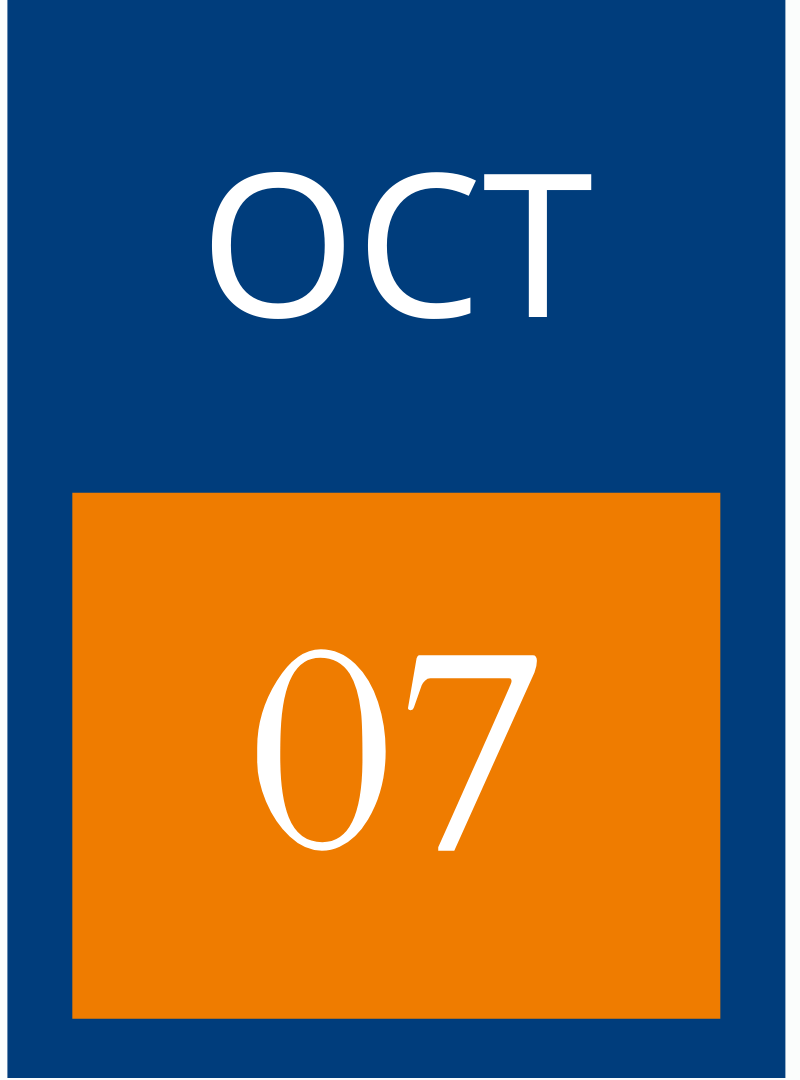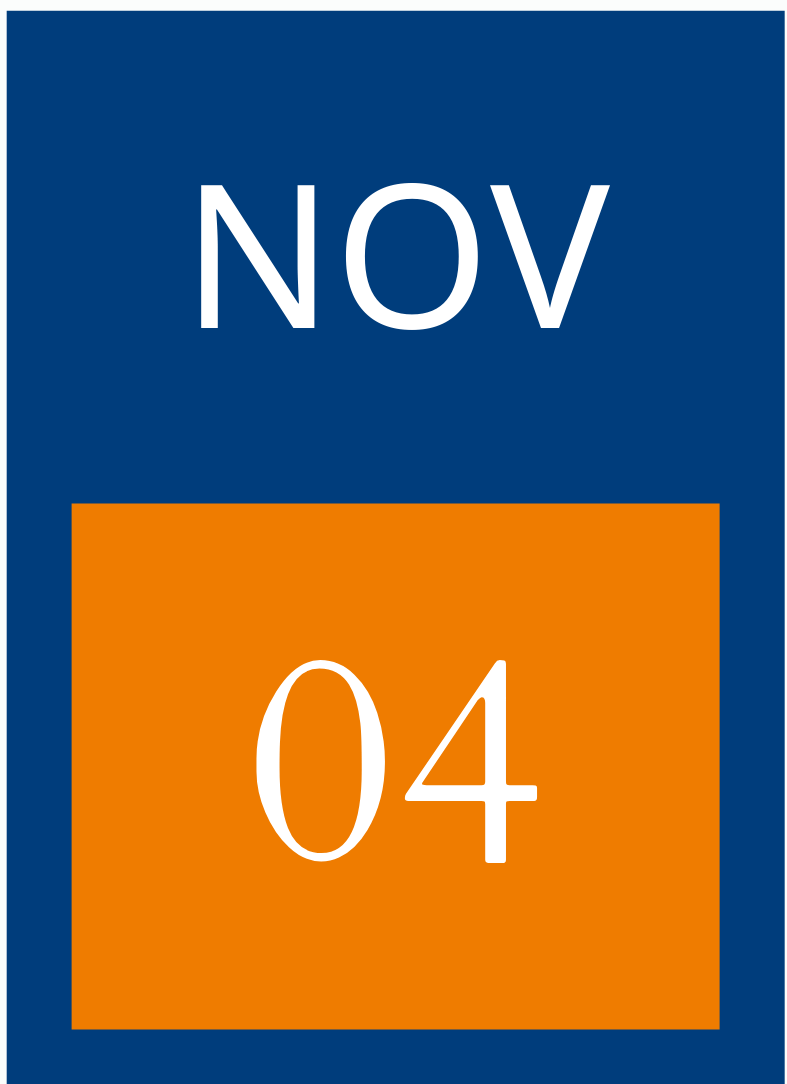Past NUS-SKKU
FinTech Seminars (2022)
The NUS–SKKU FinTech Seminar Series is a collaborative effort by the Asian Institute of Digital Finance (AIDF) at NUS and Department of FinTech at SKKU. The series aims to foster interdisciplinary discussions on the FinTech research that are relevant to the scientific community and the industry.
The monthly seminars when the two universities are in session will be conducted in a hybrid format. The speaker delivers the talk onsite (either in Singapore or Seoul) or online, and the participants can choose to join a seminar onsite or online. The seminar time is Friday (10am-11.30am Singapore; 11am-12.30pm Seoul), which may be moved on a need basis to 2pm-3.30pm Singapore or 3pm–4.30pm Seoul to accommodate the online speaker. Seminars are free but require registrations.
Join our mailing list to keep up to date on our FinTech Seminars

University of Chicago
Abstract
We reconsider the idea of trend-based predictability using methods that flexibly learn price patterns that are most predictive of future returns, rather than testing hypothesized or pre-specified patterns (e.g., momentum and reversal). Our raw predictor data are images—stock-level price charts—from which we elicit the price patterns that best predict returns using machine learning image analysis methods. The predictive patterns we identify are largely distinct from trend signals commonly analyzed in the literature, give more accurate return predictions, translate into more profitable investment strategies, and are robust to a battery of specification variations. They also appear context-independent: Predictive patterns estimated at short time scales (e.g., daily data) give similarly strong predictions when applied at longer time scales (e.g., monthly), and patterns learned from US stocks predict equally well in international markets.


Georgia State University
Abstract
We train an AI analyst that digests corporate disclosure, industry trends, and macroeconomic indicators to the extent that it beats the majority of analysts. The advantage of "Man vs. Machine'' is stronger when a firm is complex with intangible assets, and information is transparent but voluminous. Analysts catch up with machines over time especially after target firms are covered by alternative data and their brokerage houses build up AI capabilities. AI power and human wisdom are complementary in generating accurate forecasts, portraying a future of "Machine + Human'' (instead of human displacement) in financial analyses, and likely other high-skill professions.


University of Calgary
Abstract
We analyze a unique data set of liquidations on two DeFi lending platforms – Compound and Aave. Using Blockchain transaction data, we document the high frequency price impact of these liquidity trades on 9 different decentralized exchanges. Consistent with large block trades in equity markets there is a temporary and permanent price impact of collateral asset sales in DeFi. Our work highlights the systemic fragility of Decentralized Finance.


Data Science for Blockchain
University of Texas at Dallas
Abstract
Blockchain is an emerging technology that has enabled many applications, from cryptocurrencies to digital asset management and supply chains. Due to this surge of popularity, analyzing the data stored on blockchains poses a new critical challenge in data science. To assist data scientists in various analytic tasks for a blockchain, in this tutorial, we provide a systematic and compre- hensive overview of the fundamental elements of blockchain network models. We discuss how we can abstract blockchain data as various types of networks and further use such associated network abstractions to reap important insights on blockchains' structure, organization, and functionality.
This article is categorized under:
- Technologies > Data Preprocessing
- Application Areas > Business and Industry
- Fundamental Concepts of Data and Knowledge > Data Concepts
- Fundamental Concepts of Data and Knowledge > Knowledge Representation
Research Papers


Battle of the Bots: Flash loans, Miner Extractable Value and Efficient Settlement
University of California, Berkeley
Abstract
Settlement on decentralized ledgers enables flash loans --- loans that are both originated and repaid within the same instant of settlement time. We document empirically that these are used primarily for arbitrage. The settlement also allows settlement agents to expropriate profitable arbitrage trades. We show theoretically and empirically that private settlement emerges endogenously as a mechanism to mitigate this expropriation. We document payments from arbitrageurs to private settlers that exceed 1 million USD per day. In a simple model, we characterize the socially optimal mix of private and public settlement.
Research Paper


Textual Data Analytics in Finance
Research Center for Information Technology Innovation (CITI), Academia Sinica
Abstract
The growing amount of public financial data makes it more and more important to learn how to discover valuable information for financial decision-making. This talk presents our recent studies on exploring and mining soft information in financial reports. This talk will cover several machine learning techniques, such as learning to rank and word embedding on financial reports for the study of financial risk among companies and for discovering new finance keywords. A brief demonstration of our developed web-based information system, Fin10K, will be given to show its ability to facilitate the analysis of textual information in finance. In addition, we will briefly introduce our recent work that utilizes deep neural networks to extend the understanding of unstructured financial data from the word level to the multiword expression (MWE) level, the sentence level, or even the document level.
Research Papers


The Wolfs of WallStreetBets
City University of Hong Kong
Abstract
The market frenzy of GameStop (GME) in January 2021 caused a short squeeze which even led to an investigation by the US congress. Users of the Reddit platform WallsStreetBets jointly caused market disruptions bringing hedgefonds and institutional investors into difficulties which puts at question the determinants behind the communities activities. In this study we analyse the posting behavior of the users on WallStreetBets before, during and after the market frenzy. We develop a sparse network model and propose a changepoint detection framework to analyse the change in behavior of users dependent on general network metrics, the community behavior and the posting behavior of other users. We observe that influencers who change their behavior before the market frenzy did so unaffected by the network state or other users. Though influencers who changed their behavior during the frenzy were driven by the network activity and other users. We observe an impact from a group of influencers on the community but also from the overall network activity which suggests that the community developed its own dynamics, further spurring their activity.


Volatile Safe-Haven Asset
University of Houston
Abstract
Despite its high volatility, Bitcoin is alleged to offer diversification benefits through its relatively low correlation with stock markets. However, Bitcoin differs from traditional safe-haven assets; its price is highly sensitive to time-varying correlations and diversification benefits. We find that a decrease (an increase) in correlation between Bitcoin and S&P500 index strongly predicts higher (lower) Bitcoin returns the next day. Following the mean-variance framework, we develop a stylized model of Bitcoin prices utilizing extreme disagreement among Bitcoin investors. When the model is calibrated to Bitcoin's predictability results, it simultaneously explains the lack of predictability in gold and long-term treasuries.
Research Paper

The NUS–SKKU FinTech Seminar Series is a collaborative effort by the Asian Institute of Digital Finance (AIDF) at NUS and Department of FinTech at SKKU. The series aims to foster interdisciplinary discussions on the FinTech research that are relevant to the scientific community and the industry.
The monthly seminars when the two universities are in session will be conducted in a hybrid format. The speaker delivers the talk onsite (either in Singapore or Seoul) or online, and the participants can choose to join a seminar onsite or online. The seminar time is Friday (10:00-11.30am Singapore; 11:00am-12.30pm Seoul), which may be moved on a need basis to 2:00-3.30pm Singapore or 3:00–4.30pm Seoul to accommodate the online speaker. Seminars are free but require registrations.


University of Chicago
Abstract
We reconsider the idea of trend-based predictability using methods that flexibly learn price patterns that are most predictive of future returns, rather than testing hypothesized or pre-specified patterns (e.g., momentum and reversal). Our raw predictor data are images—stock-level price charts—from which we elicit the price patterns that best predict returns using machine learning image analysis methods. The predictive patterns we identify are largely distinct from trend signals commonly analyzed in the literature, give more accurate return predictions, translate into more profitable investment strategies, and are robust to a battery of specification variations. They also appear context-independent: Predictive patterns estimated at short time scales (e.g., daily data) give similarly strong predictions when applied at longer time scales (e.g., monthly), and patterns learned from US stocks predict equally well in international markets.


Georgia State University
Abstract
We train an AI analyst that digests corporate disclosure, industry trends, and macroeconomic indicators to the extent that it beats the majority of analysts. The advantage of "Man vs. Machine'' is stronger when a firm is complex with intangible assets, and information is transparent but voluminous. Analysts catch up with machines over time especially after target firms are covered by alternative data and their brokerage houses build up AI capabilities. AI power and human wisdom are complementary in generating accurate forecasts, portraying a future of "Machine + Human'' (instead of human displacement) in financial analyses, and likely other high-skill professions.


University of Calgary
Abstract
We analyze a unique data set of liquidations on two DeFi lending platforms – Compound and Aave. Using Blockchain transaction data, we document the high frequency price impact of these liquidity trades on 9 different decentralized exchanges. Consistent with large block trades in equity markets there is a temporary and permanent price impact of collateral asset sales in DeFi. Our work highlights the systemic fragility of Decentralized Finance.


Data Science for Blockchain
University of Texas at Dallas
Abstract
Blockchain is an emerging technology that has enabled many applications, from cryptocurrencies to digital asset management and supply chains. Due to this surge of popularity, analyzing the data stored on blockchains poses a new critical challenge in data science. To assist data scientists in various analytic tasks for a blockchain, in this tutorial, we provide a systematic and compre- hensive overview of the fundamental elements of blockchain network models. We discuss how we can abstract blockchain data as various types of networks and further use such associated network abstractions to reap important insights on blockchains' structure, organization, and functionality.
This article is categorized under:
-
- Technologies > Data Preprocessing
- Application Areas > Business and Industry
- Fundamental Concepts of Data and Knowledge > Data Concepts
- Fundamental Concepts of Data and Knowledge > Knowledge Representation
Research Papers:


Battle of the Bots: Flash loans, Miner Extractable Value and Efficient Settlement
University of California, Berkeley
Abstract
Settlement on decentralized ledgers enables flash loans --- loans that are both originated and repaid within the same instant of settlement time. We document empirically that these are used primarily for arbitrage. The settlement also allows settlement agents to expropriate profitable arbitrage trades. We show theoretically and empirically that private settlement emerges endogenously as a mechanism to mitigate this expropriation. We document payments from arbitrageurs to private settlers that exceed 1 million USD per day. In a simple model, we characterize the socially optimal mix of private and public settlement.
Research Paper:


Textual Data Analytics in Finance
Research Center for Information Technology Innovation (CITI), Academia Sinica
Abstract
The growing amount of public financial data makes it more and more important to learn how to discover valuable information for financial decision-making. This talk presents our recent studies on exploring and mining soft information in financial reports. This talk will cover several machine learning techniques, such as learning to rank and word embedding on financial reports for the study of financial risk among companies and for discovering new finance keywords. A brief demonstration of our developed web-based information system, Fin10K, will be given to show its ability to facilitate the analysis of textual information in finance. In addition, we will briefly introduce our recent work that utilizes deep neural networks to extend the understanding of unstructured financial data from the word level to the multiword expression (MWE) level, the sentence level, or even the document level.
Research Paper:


The Wolfs of WallStreetBets
City University of Hong Kong
Abstract
The market frenzy of GameStop (GME) in January 2021 caused a short squeeze which even led to an investigation by the US congress. Users of the Reddit platform WallsStreetBets jointly caused market disruptions bringing hedgefonds and institutional investors into difficulties which puts at question the determinants behind the communities activities. In this study we analyse the posting behavior of the users on WallStreetBets before, during and after the market frenzy. We develop a sparse network model and propose a changepoint detection framework to analyse the change in behavior of users dependent on general network metrics, the community behavior and the posting behavior of other users. We observe that influencers who change their behavior before the market frenzy did so unaffected by the network state or other users. Though influencers who changed their behavior during the frenzy were driven by the network activity and other users. We observe an impact from a group of influencers on the community but also from the overall network activity which suggests that the community developed its own dynamics, further spurring their activity.


Volatile Safe-Haven Asset
University of Houston
Abstract
Despite its high volatility, Bitcoin is alleged to offer diversification benefits through its relatively low correlation with stock markets. However, Bitcoin differs from traditional safe-haven assets; its price is highly sensitive to time-varying correlations and diversification benefits. We find that a decrease (an increase) in correlation between Bitcoin and S&P500 index strongly predicts higher (lower) Bitcoin returns the next day. Following the mean-variance framework, we develop a stylized model of Bitcoin prices utilizing extreme disagreement among Bitcoin investors. When the model is calibrated to Bitcoin's predictability results, it simultaneously explains the lack of predictability in gold and long-term treasuries.
Research Paper:


